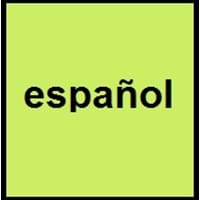Countries
Czech Republic, European Union
Andora, Argentina, Aruba, Australia, Belize, Bolivia, Brazil, Canada, Chile, Colombia, Costa Rica, Cuba, Dominican Republic, Ecuador, El Salvador, Equatorial Guinea, France, Gibraltar, Guatemala, Honduras, Jamaica, Latvia, Luxembourg, Mexico, Morocco, Namibia, Netherlands Antilles, New Zealand, Nicaragua, Norway, Panama, Paraguay, Peru, Philippines, Puerto Rico, Russia, Spain, Sweden, Switzerland, Trinidad and Tobago, Turkey, United Kingdom, United States of America, Uruguay, Venezuela, Western Sahara
National Language
Czech Republic
Spain
Second Language
Not spoken in any of the countries
Andora, Aruba, Australia, Austria, Belgium, Belize, Brazil, Bulgaria, Canada, Denmark, France, Germany, Ireland, Israel, Italy, Jamaica, Luxembourg, Morocco, Netherlands, Netherlands Antilles, New Zealand, Philippines, Poland, Portugal, Romania, Russia, Slovenia, Switzerland, Trinidad and Tobago, Turkey, United Kingdom, United States of America, US Virgin Islands
Speaking Continents
Europe
Africa, Asia, Europe, North America, South America
Minority Language
Austria, Croatia, Germany, Slovakia
Brazil, France, Germany, Italy, Japan, Morocco, United Kingdom
Regulated By
Institute of the Czech Language
Asociación de Academias de la Lengua Española
Interesting Facts
- The Czech language was known as Bohemian as early at 19th century.
- In czech language, there are many words that do not contain vowels.
- One of the world's most phonetic language is Spanish.
- Up to the 18th century, Spanish was diplomatic language.
Similar To
Polish, Slovak and Sorbian
French Language
Derived From
Not Available
Latin
Alphabets in
Czech-Alphabets.jpg#200
Spanish-Alphabets.jpg#200
Writing Direction
Left-To-Right, Horizontal
Left-To-Right, Horizontal
How Are You?
Jak se máš?
Cómo estás?
Good Night
dobrou noc
Buenas Noches
Good Evening
dobrý večer
Bonne soirée
Good Afternoon
dobré odpoledne
Buenas Tardes
Good Morning
dobré ráno
Buenos Días
I Love You
Miluji tě
Te Quiero
Excuse Me
promiňte
Discúlpeme
Dialect 1
Chod
Mexican Spanish
Where They Speak
Chodsko, Bohemia
Mexico
How Many People Speak
Not Available
Dialect 2
Lach
Cuban Spanish
Where They Speak
Czech Silesia, Hlucin, Northeast Moravia
Cuba
How Many People Speak
Not Available
Dialect 3
Moravian
Puerto Rican Spanish
Where They Speak
Czech Republic, Czech Silesia, Moravia, Slovakia
Puerto Rico
Second Language Speakers
Not Available
Native Name
čeština / český jazyk
Español
Alternative Names
Bohemian, Cestina
Castellano, Castilian, Español
French Name
tchèque
espagnol; castillan
German Name
Tschechisch
Spanisch
Pronunciation
Not Available
[espaˈɲol], [kasteˈʎano]
Ethnicity
Czechs
Not Available
Origin
9th Century
210 BC
Language Family
Indo-European Family
Indo-European Family
Branch
Western
Not Available
Early Forms
Proto-Czech, Old Czech
Old Spanish and Spanish
Standard Forms
Standard Czech
Pluricentric Standard Spanish
Signed Forms
Czech Sign Language
Signed Spanish
Scope
Individual
Individual
ISO 639 6
Not Available
Not Available
Glottocode
czec1258
stan1288
Linguasphere
53-AAA-da
51-AAA-b
Language Type
Living
Living
Language Linguistic Typology
Not Available
Subject-Object-Verb
Language Morphological Typology
Fusional, Synthetic
Fusional, Synthetic
Czech and Spanish Greetings
People around the world use different languages to interact with each other. Even if we cannot communicate fluently in any language, it will always be beneficial to know about some of the common greetings or phrases from that language. This is where Czech and Spanish greetings helps you to understand basic phrases in Czech and Spanish language. Czech word for "Hello" is ahoj or Spanish word for "Thank You" is Gracias. Find more of such common Czech Greetings and Spanish Greetings. These greetings will help you to be more confident when conversing with natives that speak these languages.
Czech vs Spanish Difficulty
The Czech vs Spanish difficulty level basically depends on the number of Czech Alphabets and Spanish Alphabets. Also the number of vowels and consonants in the language plays an important role in deciding the difficulty level of that language. The important points to be considered when we compare Czech and Spanish are the origin, speaking countries, language family, different greetings, speaking population of these languages. Want to know in Czech and Spanish, which language is harder to learn? Time required to learn Czech is 44 weeks while to learn Spanish time required is 24 weeks.





